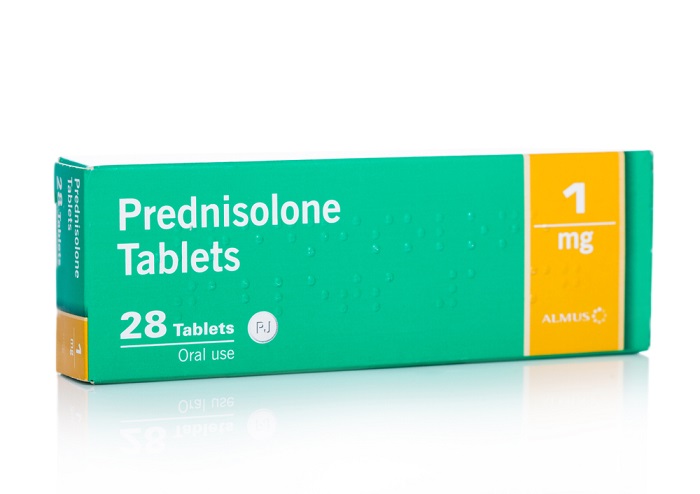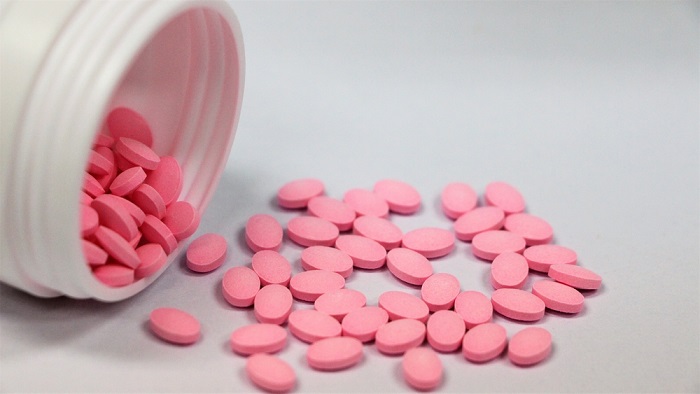What is Prednisone?
Prednisone is a generic alternative to such brand names as Deltasone, Rayos, and Sterapred. It represents an effective anti-inflammatory medicine that is also used to decrease the functioning of the immune system. It belongs to the group of drugs known as corticosteroids that prevent the spread of inflammation in the body. It is used to manage a range of health problems such as arthritis, psoriasis, breathing problems, lupus, ulcerative colitis, allergies and skin diseases among others.
Recommendations for Use
The dosage and duration of the treatment may vary from case to case. It depends on your age, health problems you suffer from at the moment, the severity of your state of health, other medicines that you might be taking for other medical conditions as well as your individual reaction to the treatment with this medication. Prednisone comes in two forms: immediate-release tablets and delayed-release tablets for oral use. As a rule, adults are advised to take a starting dose of 5 mg a day that may be increased to a maximum dose of 60 mg a day, which wholly depends on what kind of condition is being managed. A recommendable child's dosage depends on the weight of a child. Only a doctor can determine what dose would be best in your child’s case.
Precautions and Contraindications
Prednisone tablets may provoke a severe allergic reaction in certain patients causing skin reactions, breathing problems and swelling of body parts as well as itching and skin rash among others. Do not take this medicine if you have ever experienced an allergy to any of its components. Taking it once more may result in lethal outcomes. If you suffer from any infectious disease, your condition may worsen after taking this drug, because it weakens the functioning of the immune system. Prednisone may provoke an increase in blood pressure. Avoid using it if you have heart disease or kidney problems. People with diabetes should also avoid using it because it increases the level of sugar in the blood.
Drug Interactions
The use of Prednisone together with certain medicines, vitamins, and herbal drugs may cause unwanted interactions, which might be harmful to your health. Let your doctor know if you are currently taking Mifepristone, Bupropion, Haloperidol, anti-diabetes medications, live vaccines, Warfarin, Digoxin as well as other anti-inflammatory drugs of non-steroidal nature such as naproxen, piroxicam, ibuprofen, and others.
Side Effects
Just like other corticosteroids, Prednisone may cause mild or severe adverse reactions depending on the dosage you are using and duration of treatment. The most widespread side effects include salt and water retention, weight changes, increase in blood pressure, lack of potassium, muscle pain or weakness, headaches, skin problems, nausea or vomiting, agitation, inability to sleep normally. More serious side effects may include the growth of hair on your face, quick bruising of the skin, hiccups and eye problems, aggravation of diabetes symptoms, irregular menstruation, weight gain, convulsions, impaired vision, too fast heartbeat and allergic skin reactions among others.
Prednisone and Other Drugs
Certain drugs may influence the effectiveness of treatment with Prednisone. Let your doctor know if you are taking any of the following medicines: cyclosporine, digoxin, antibiotics, birth regulation tablets or hormonal drugs, blood-thinning medicines, diuretics, anti-hepatitis medications, HIV medicines, and diabetes drugs for oral use, non-steroidal drugs for inflammations, convulsion medicines, tuberculosis drugs and a range of others.
Overdose
In case you suspect an overdose of Prednisone, seek medical help immediately. An overdose of this drug may not necessarily lead to any life-threatening signs and symptoms. Nonetheless, a long-term intake of high doses of this drug may provoke such adverse reactions relating to overdose as thinning of the skin, quick bruising, accumulation of fat in certain body parts (such as face, neck or waist), serious skin reactions such as facial hair or acute forms of acne, irregular menstrual cycle and decreased sexual activity provoked by the lack of sexual desire.


